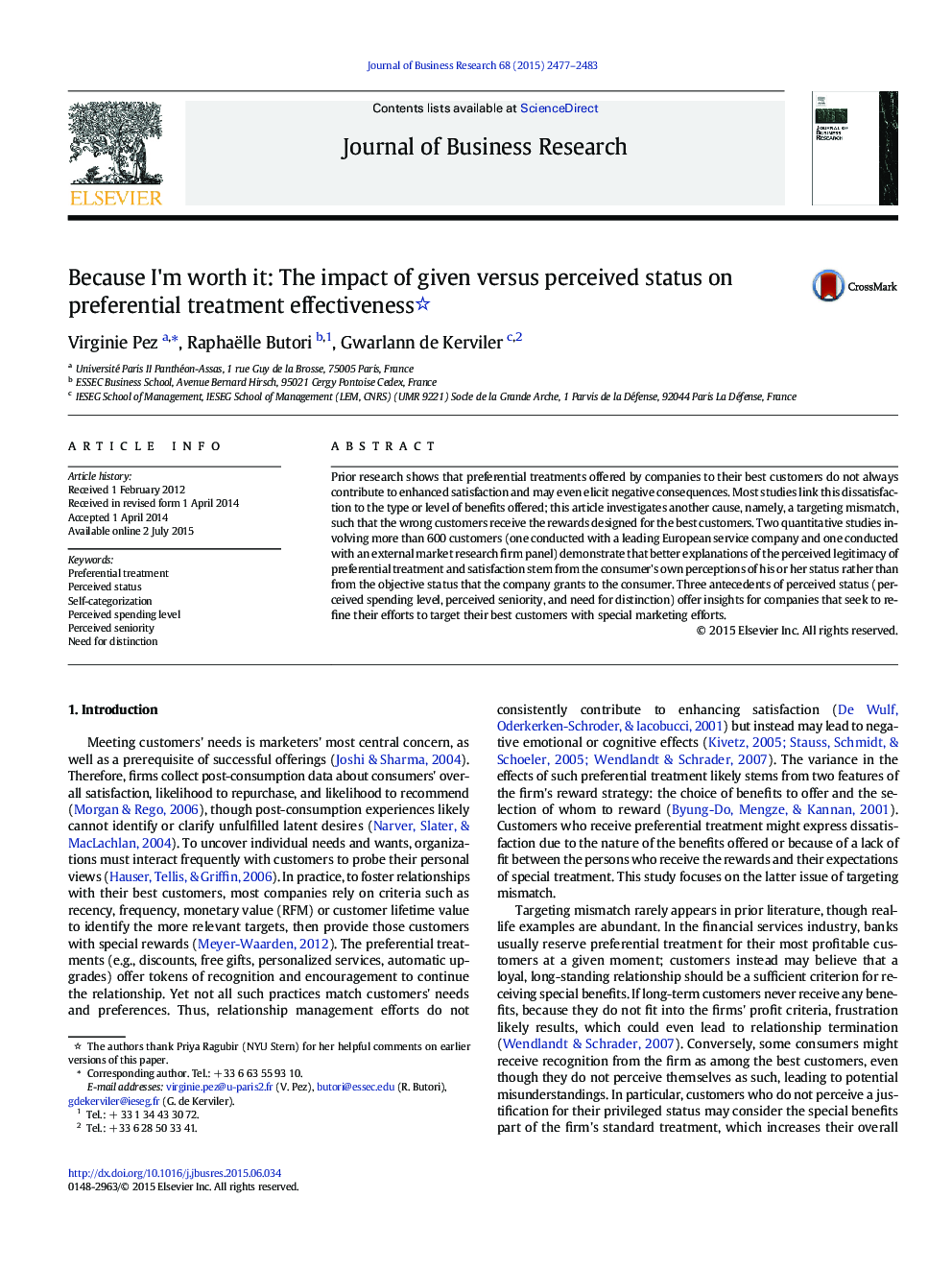| Article ID | Journal | Published Year | Pages | File Type |
|---|---|---|---|---|
| 1017042 | Journal of Business Research | 2015 | 7 Pages |
Prior research shows that preferential treatments offered by companies to their best customers do not always contribute to enhanced satisfaction and may even elicit negative consequences. Most studies link this dissatisfaction to the type or level of benefits offered; this article investigates another cause, namely, a targeting mismatch, such that the wrong customers receive the rewards designed for the best customers. Two quantitative studies involving more than 600 customers (one conducted with a leading European service company and one conducted with an external market research firm panel) demonstrate that better explanations of the perceived legitimacy of preferential treatment and satisfaction stem from the consumer's own perceptions of his or her status rather than from the objective status that the company grants to the consumer. Three antecedents of perceived status (perceived spending level, perceived seniority, and need for distinction) offer insights for companies that seek to refine their efforts to target their best customers with special marketing efforts.
